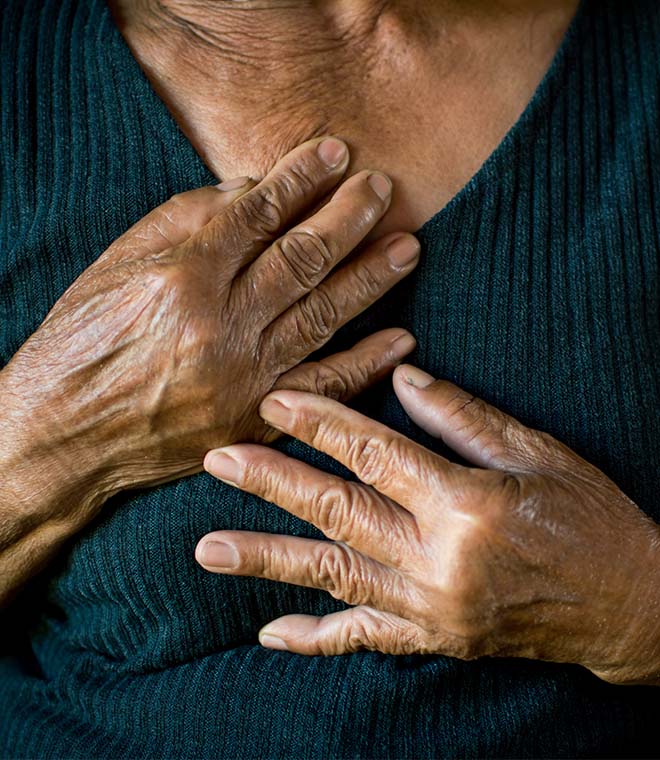Health
What are some foods to lower cholesterol?
By Jenilee Matz, MPH Jun 26, 2024 • 7 min
Unhealthy cholesterol levels are associated with an increased risk of other conditions, such as heart disease, heart attack and stroke. Often times, people do not have any symptoms of elevated cholesterol (also known as hyperlipidemia). That’s why it’s important to have regular cholesterol checks with your healthcare provider and maintain a healthy diet and lifestyle.
To achieve or maintain healthy cholesterol levels, your healthcare provider may suggest making the following lifestyle changes, including:
- Reaching and maintaining a healthy weight
- Quitting smoking
- Exercising regularly
- Eating a heart-healthy diet
- Drinking alcohol in moderation
Cholesterol basics
Cholesterol tends to get a bad rap, but our bodies actually need this fatty substance to build cells and make hormones. There are two main types of cholesterol: low-density lipoprotein (LDL or "bad" cholesterol) and high-density lipoprotein (HDL or "good" cholesterol). High levels of LDL cholesterol can cause plaque (fatty deposits) to build up in your blood vessels, which can create a blockage that restricts blood flow. This can lead to a heart attack or stroke. HDL cholesterol helps protect the arteries by carrying away excess LDL cholesterol.
The link between food and cholesterol levels
Your liver makes all the cholesterol your body needs, but certain foods also contain cholesterol. What's more, these foods can also contain saturated and trans fats, which can increase cholesterol in your body. In some cases, extra cholesterol can raise the LDL cholesterol in your body to unhealthy levels. Triglycerides are another type of blood fat that's often measured with cholesterol. The body converts excess calories into triglycerides and stores them in fat cells.
What are the worst foods for high cholesterol?
Foods that are high in saturated fats can raise the amount of LDL cholesterol in the blood. Saturated fat is found mostly in animal products, including fatty cuts of meat, poultry with skin and full-fat dairy products. It can also be found in certain tropical oils, such as coconut and palm oils.
What are foods high in cholesterol?
Foods that are high in dietary cholesterol, such as fatty meats and full-fat dairy products, are often the same foods that are high in saturated fat. The relationship between dietary cholesterol and blood cholesterol is complex, but for heart health, it's best to consume as little dietary cholesterol as possible. This is because curbing your intake of dietary cholesterol helps cut how much saturated fat you eat.
Which foods help reduce cholesterol?
Foods that contain fiber, such as fruit, vegetables, beans, lentils, oats and whole grains, can help combat high levels of bad cholesterol in the blood. There are two types of fiber: soluble and insoluble. Both kinds are important for health, but soluble fiber is known to help lower LDL cholesterol and may help lower glucose levels and decrease the risk of heart disease. Oats, kidney beans, Brussels sprouts, asparagus, sweet potatoes, apples, oranges, and soy foods all provide soluble fiber.
Foods that contain plant sterols and stanols (phytosterols), including vegetable oils, nuts, seeds and whole grains, can also help reduce LDL cholesterol levels. Some foods are fortified with sterols or stanols or you can find phytosterols in supplement form.
Eating oily fish, which contain omega-3 fatty acids, can aid in lowering triglyceride levels.
Healthy eating tips for lower cholesterol
To help keep cholesterol in check, choose recipes that incorporate fruits, vegetables, whole grains and lean sources of protein. Follow these tips when planning meals:
- Eat a variety of colorful fruits and vegetables. Try roasting veggies with a tiny bit of olive oil and season them with herbs and spices rather than frying them in sauces.
- Use low-fat methods for cooking food, such as grilling, baking, broiling,
- microwaving, roasting and stir-frying.
- Opt for whole grains instead of "white" grains. Go for barley, oatmeal, brown rice, wheat bread and whole grain pasta.
- Limit meats, especially processed meats, including salami, sausage, hot dogs, fattier cuts of meat and dark meat.
- When you do eat meat, choose lean cuts of meat and remove any visible fat or skin before cooking.
- Trade meats for plant-based or vegetarian sources of protein, such as beans, lentils and soy foods, for breakfast, lunch or dinner.
- Strive to eat eight ounces of oily fish per week, such as salmon, tuna, mackerel, herring or trout.
- Swap out full-fat cheese, yogurt, milk and other dairy products for nonfat or low-fat varieties.
- Cook with a small amount of liquid vegetable oils rich in healthier monounsaturated or polyunsaturated fats, such as olive, canola and sunflower oils, instead of solid fats, like butter, shortening and lard, which contain unhealthy saturated fat.
- Add fruit, such as bananas and berries, to your cereal or try adding chickpeas and beans to salads for fiber.
- Limit alcohol intake, which is associated with high triglycerides.
In general, following a heart-healthy diet rich in plant foods, whole grains and lean sources of protein is beneficial for cholesterol levels. Do not try any extremely restrictive diets that significantly reduce the intake of or omit any food groups, such as the ketogenic or keto diet, without talking to your healthcare provider first. They may have specific nutrition guidance for you based on your cholesterol levels and other factors.
Clinically reviewed and updated by Julie McDaniel, MSN, RN, CRNI, June 2024.
Sources:
- https://www.heart.org/en/health-topics/cholesterol/prevention-and-treatment-of-high-cholesterol-hyperlipidemia/cooking-to-lower-cholesterol
- https://www.heart.org/en/health-topics/cholesterol/about-cholesterol
- https://www.dietaryguidelines.gov/sites/default/files/2021-03/Dietary_Guidelines_for_Americans-2020-2025.pdf
- https://www.cdc.gov/cholesterol/about/myths.html
- https://www.health.harvard.edu/heart-health/11-foods-that-lower-cholesterol
- https://www.heart.org/en/health-topics/cholesterol/about-cholesterol/what-your-cholesterol-levels-mean
- https://www.nhlbi.nih.gov/health/blood-cholesterol/causes
- https://www.cdc.gov/cholesterol/risk-factors/index.html
- https://www.ncbi.nlm.nih.gov/books/NBK559182/
- https://www.mayoclinic.org/diseases-conditions/high-blood-cholesterol/in-depth/reduce-cholesterol/art-20045935
- https://www.nhlbi.nih.gov/health/high-blood-triglycerides
- https://nutritionsource.hsph.harvard.edu/carbohydrates/fiber/
- https://my.clevelandclinic.org/health/drugs/17368-phytosterols-sterols--stanols
- https://www.nhlbi.nih.gov/resources/your-guide-lowering-cholesterol-therapeutic-lifestyle-changes-tlc



